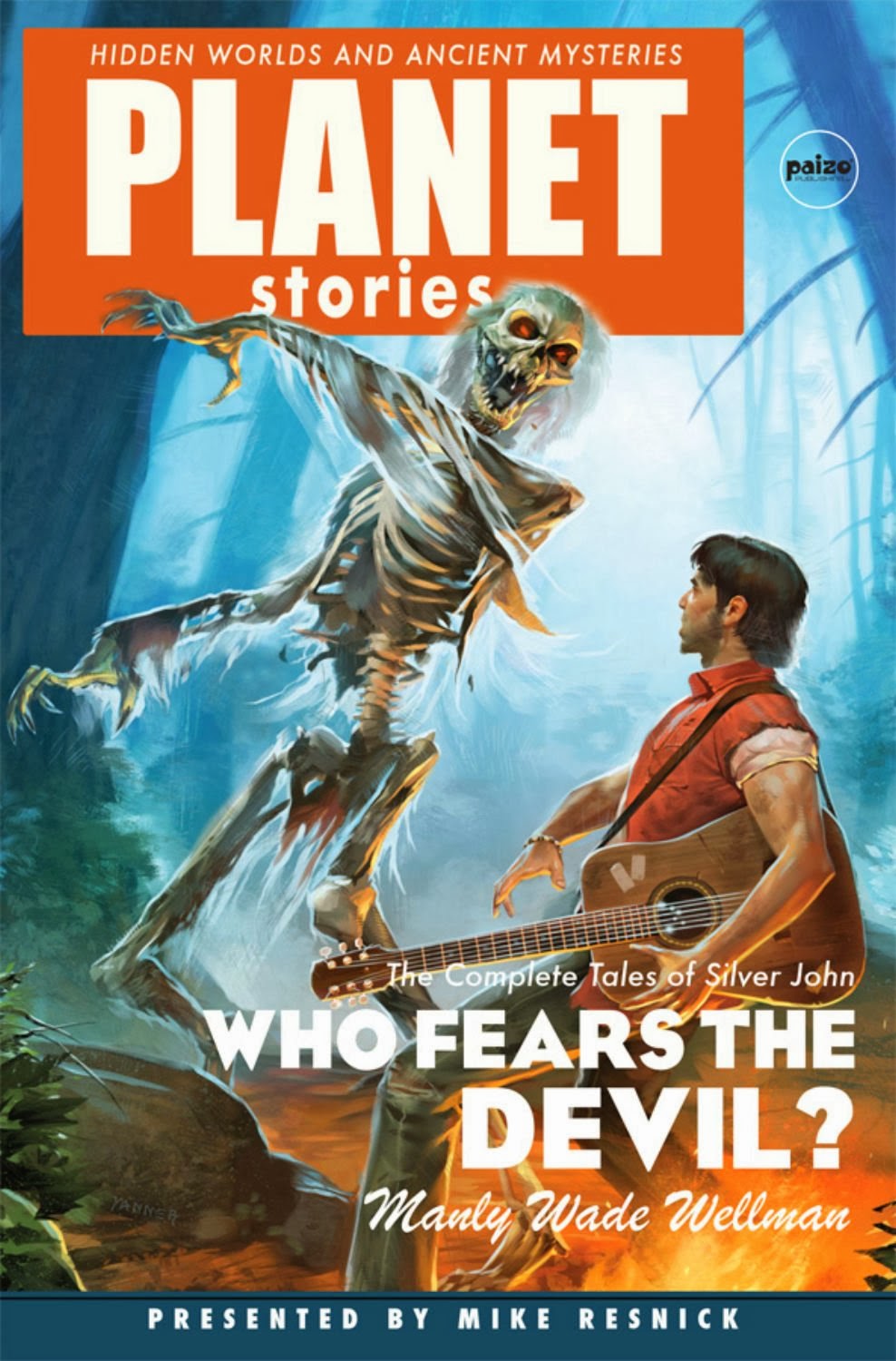Sir Arthur Conan Doyle
may be most famous for creating Sherlock Holmes, but he is also
responsible for putting a name to the pulp/fantasy genre of the lost
world novel. Professor Challenger's journey onto a plateau in South
America where dinosaurs still roamed has affixed the phrase “lost
world” to all such ventures into lands that time forgot, where
creatures thought lost to the mists of history remain and thrive.
We are lucky to have
an ancient copy of The Lost World, an edition by John Murray and co,
published in 1914, complete with beautifully-faked “photographs”
from the expedition, showing the mysterious plateau - I'll post scans from it in a later post.
Other writers have created lost worlds of their own, for example
on Antarctic islands - Edgar Rice Burroughs' The Land that Time Forgot
and sequels.
Another good place for a lost world is in chambers inside the
earth. Jules Verne's Journey to the Centre of the Earth is the obvious example, but Edgar Rice Burroughs also got in on the act with his Pellucidar stories.

South America was also popular (and quickly became very crowded with supernatural creatures and regions). As well as Conan Doyle's Lost World. A Merritt's The Face in the Abyss
is probably the best early contender here.

 By the late 1930s, Earth was becoming
crowded and the presence of dinosaurs or other creatures was becoming
more difficult for writers to suggest, and so lost world-style stories moved elsewhere in
the solar system.
By the late 1930s, Earth was becoming
crowded and the presence of dinosaurs or other creatures was becoming
more difficult for writers to suggest, and so lost world-style stories moved elsewhere in
the solar system.
As well as Edgar Rice Burroughs (whose heroes
travelled to most planets in the solar system), contemporaries such
as Otis Adelbert Kline, Ralph Farley and Manly Wade Wellman explored
visions of colourful alien worlds.
As scientific
knowledge grew apace the solar system became too difficult to
justify. Now, the lost worlds have moved to other dimensions, fantasy
lands and distant worlds. But they still have a sense of wonder about
them – it is a field of fantasy that (unlike the dinosaur) is
still alive and kicking, both in books and films.





No comments:
Post a Comment